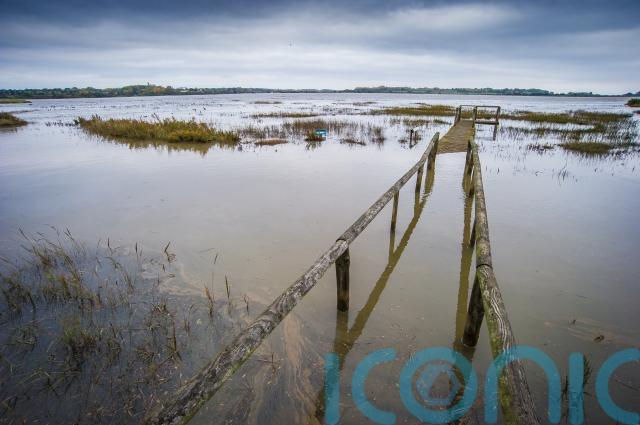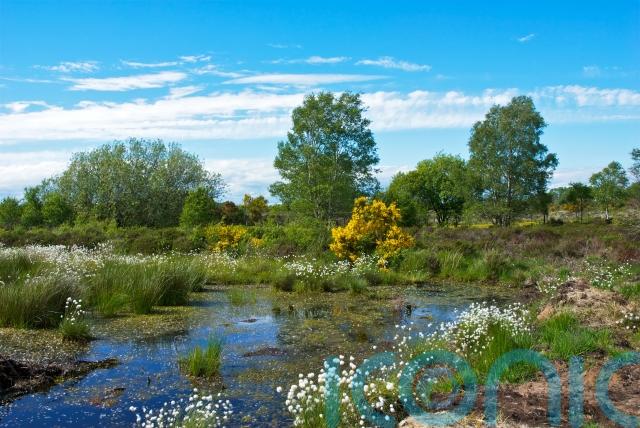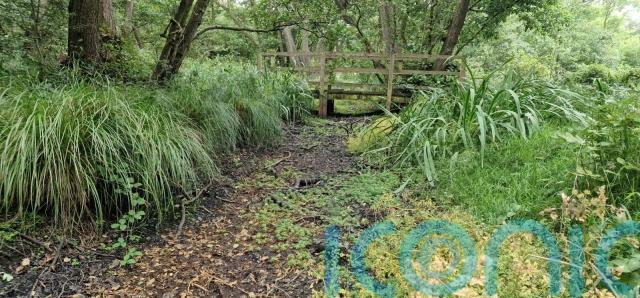
UK wildlife and habitats from butterflies to bogs have been battered by “chaotic” weather extremes driven by climate change in the past year, conservationists warn.
Climate change is accelerating at a “frightening pace”, causing chaos in the UK’s weather, and the country is “shockingly underprepared” for the kind of extremes we are now seeing, The Wildlife Trusts warn in a new report.
The past 12 months have seen extreme changes in weather patterns, with the warmest spring on record in 2025 and widespread drought and multiple heatwaves this summer following on from extensive flooding in winter 2024.

Drought and heat extremes have caused peat bogs and heathlands to dry out, while low water levels in ponds, streams and rivers have hit wildlife from trout to swifts and dragonflies, while high wildfire risks have threatened precious landscapes and the species that depend on them.
Many nature reserves cared for by trusts around the country have been hit by flooding following disruptive storms, and extremes of wet weather have hammered species such as butterflies, the report said.
The Wildlife Trusts said they “now treat extreme weather as normal weather” and are taking steps ranging from re-wiggling rivers and reintroducing beavers to create wetlands that can store water in the landscape to restoring peatlands, in order to make British wildlife and habitats more resilient.
But the UK Government must rapidly undertake a major overhaul of efforts to adapt the country to the changes in climate to protect people, the economy and nature, the conservation groups urge.
Kathryn Brown, director of climate change and evidence at The Wildlife Trusts, said: “Our new report reveals that climate change is accelerating at a frightening pace, with worrying impacts on wildlife and nature reserves – as well as on human health and our future resilience as an economy.
“Yet while wildlife trust staff and volunteers across the UK race to adapt the way that we care for our land, Government action to address climate change is fast falling behind.”
And she urged: “The events in southern Europe – where wildfires and floods have imperilled both people and wildlife – should sound the alarm loudly: we are shockingly underprepared for such extremes here in the UK.
“The UK Government must rapidly undertake a major overhaul of adaptation policy, with increased funding and co-ordination, in order to tackle this accelerating threat head on.”
The report details impacts of extreme changes in weather in the past year, such as exceptionally high rainfall last autumn which saw flooding across multiple Wildlife Trust for Bedfordshire, Cambridgeshire and Northamptonshire reserves after two months of rain fell in a few days.

It highlights the role of extreme weather in the “butterfly emergency” declared in September 2024, after a summer count by Butterfly Conservation showed the lowest numbers on record for some species, while a count in Yorkshire Wildlife Trust reserves showed numbers down to less than half of 2023 figures.
But then spring 2025 was one of the driest on record in the UK, as well as the warmest and sunniest, with extreme drying at Northumberland Wildlife Trust’s Whitelee Moor reserve threatening precious peat bog and heathland habitat.
Worcestershire Wildlife Trust saw pools that support dragonflies dry up and Hertfordshire and Middlesex Wildlife Trust reported ponds drying up earlier than usual and lower numbers of swallows and swifts at Wilstone Reservoir, thought to be because of lack of small insects they feed on.

This summer has also seen serious wildfire damage, with rangers at Dorset Wildlife Trust’s Upton Heath finding charred birds’ nests among the debris of a major fire in April, while a blaze at Staffordshire Wildlife Trust’s Gentleshaw Common nature reserve threatened bees, birds, mammals and reptiles.
And marine heatwaves in 2024 and 2025 have affected wildlife in the seas around the UK.
Trusts around the UK are taking steps to protect nature and make landscapes more resilient to the changes, reintroducing species ranging from beavers to rare scrambled egg lichen, restoring farmland to wetlands, woodlands and grasslands, installing “butterfly banks” and creating temperate rainforests.
While the report welcomes Government moves to grant wild beaver releases, maintain the fishing ban on sand eels – an important food source for birds such as puffins – in the North Sea and extending the ban on burning peat, it warns more is needed.

There has not been an increase in total investment in helping nature adapt to a changing climate, and national adaptation plans have not been specific enough, it said.
The report urges the Government to create new emergency plans for extreme wildfire, flood, drought and heat.
The Environment Department (Defra) has been contacted for comment.
Subscribe or register today to discover more from DonegalLive.ie
Buy the e-paper of the Donegal Democrat, Donegal People's Press, Donegal Post and Inish Times here for instant access to Donegal's premier news titles.
Keep up with the latest news from Donegal with our daily newsletter featuring the most important stories of the day delivered to your inbox every evening at 5pm.